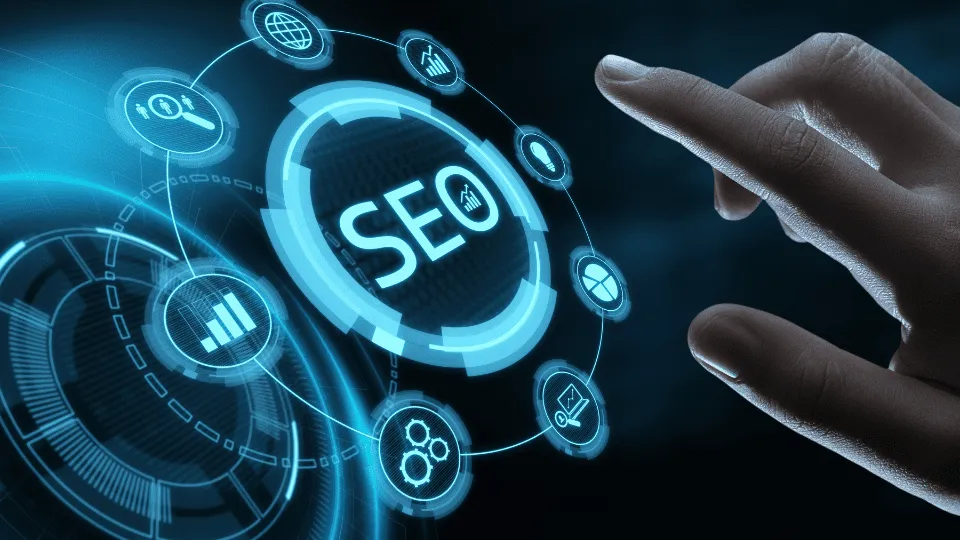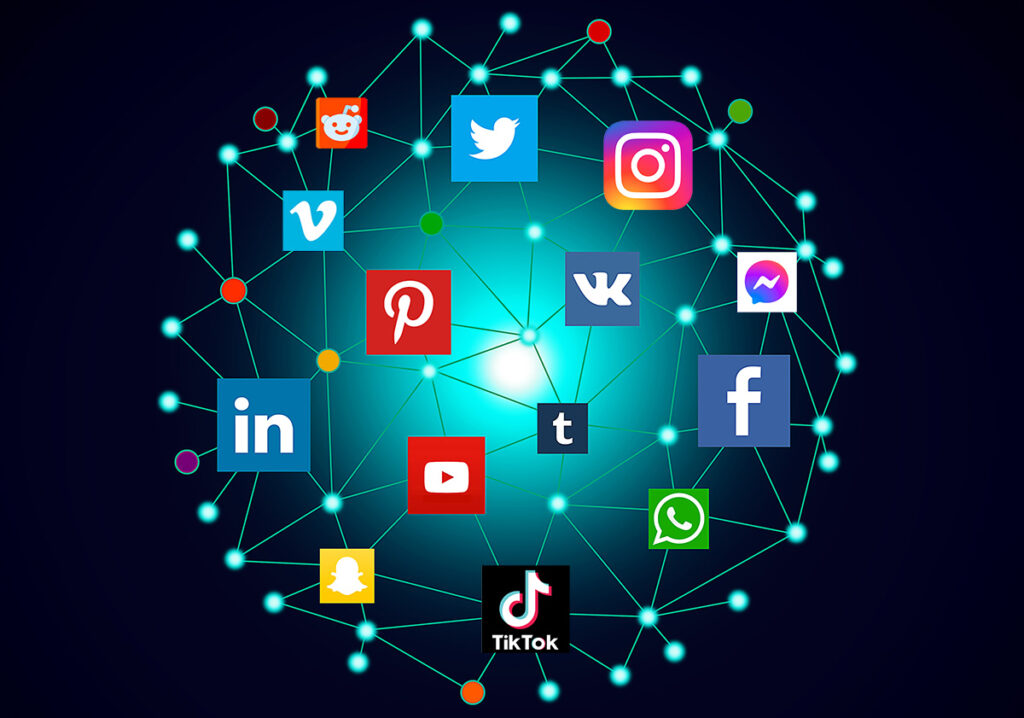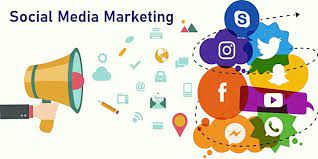The Key Difference Between Digital Marketing and Digital Media
In this article, we discuss the significance and importance of Digital advertising vs Digital marketing. Digital Advertising. Let’s explore the difference between digital marketing and digital media methodically. Both of These two terms often used interchangeably, yet they’re as different as salsa and ballet. However, we cannot grow our business online without understanding the difference between these two terms!
Digital marketing is how you connect and how you engage. It’s your PPC ad, your email campaigns, and your SEO. It’s your plans, your strategy and your performance.
On the other hand, digital media is actually where you perform digital marketing. It’s your social media platforms, your websites social platforms, your blogs.
Digital Marketing
Digital marketing, also called online marketing, is the promotion of brands to connect with potential customers using the internet and other forms of digital communication. This includes not only email, social media, and web-based advertising, but also text and multimedia messages as a marketing channel.
Now we discuss the digital marketing. It is not just a unplanned slogan that you might be hearing at your workplace way too often. It’s beyond that.Digital marketing refers to promoting products or services on the Internet. It’s about reaching out to your audience, right where they are – online.
Why is digital marketing important? It’s simple. Your customers are online. They’re browsing websites, checking emails, and scrolling through social media. Digital marketing allows you to reach them directly, in their spaceThere’s a lot to digital marketing. It’s divided into several components that synergistically drive your websites to success.

SEO
SEO—short for search engine optimization—is about helping search engines understand your content, and helping users find your site and make a decision about whether they should visit your site through a search engine.SEO brings your online content as close as to search-engine-friendly parameters. It’s about optimizing your content in such a way that a search engine prefers to show it as a top result for searches of a certain keyword. It’s subtle, but powerful
Email Marketing
E-marketing is a process of planning and executing the conception, distribution, promotion, and pricing of products and services in a computerized, networked environment, such as the Internet and the World Wide Web, to facilitate exchanges and satisfy customer demands.
Email marketing is all about sending emails to customers and prospects its helps you connect with your audience to inform them about all the update of your latest services and your products.
Add YouContent Marketingr Heading Text Here
Content marketing is a marketing strategy used to attract, engage, and retain an audience by creating and sharing relevant articles, videos, podcasts, and other media. This approach establishes expertise, promotes brand awareness, and keeps your business top of mind when it’s time to buy what you sell.
Content marketing is about creating and sharing online material. It could be anything that does not directly promote a brand but is intended to create desire or interest for its products or services
How To Create a Successful Digital Marketing Strategy
Organisations are facing new challenges – we are living in a digital era and consumers are changing their habits constantly. To succeed, organisations must ensure that they create differentiated customer experiences which allow them to meet these new expectations.
In order to compete, businesses need to elevate their marketing operations and develop an integrated digital marketing strategy where the customer is at the centre of all the business decisions. This requires the integration of marketing channels and technology in order to create a personalised experience for all customers.
Digital marketing is about finding out the most appropriate way to reach your relevant audience. It’s about creating an engagement with them and building lasting, profitable relationships.
It’s about making beautiful music in the online world
What is Digital Media?
In the past, information was stored and delivered through physical means like newspapers and TV broadcasts. This all changed with digital media. Digital media takes things like text, audio, and video and converts them into a format that can be transmitted through computers and the internet. This means you can now access news articles online instead of just in print, or listen to music on your phone instead of a CD player. The rise of digital media began with the internet’s ability to share text, and quickly expanded to include images, audio, and even video. This transformation is still ongoing, with new ways to create and share digital media emerging all the time.:
Websites:
Think of a website as your digital storefront. It’s a collection of web pages all under one address (domain name) that lives on the internet. Just like a physical store might sell clothes or groceries, a website can present any kind of information or service. News organizations use websites to share articles, schools use them to provide information to students, and businesses use them to showcase their products and connect with customers. In short, a website is your prime location in the digital world to inform, engage with, and even sell to your audience..
Social Media Platforms:
Social media platform means any organization that provides a service for public users to disseminate speech, expression, information, or other content (typically content that includes messages, videos, photographs, and/or sound files) to other users or the public. “Social- Media Platform” includes both the organization and any of its officers, agents, employees, contractors, or any other person employed by or acting on behalf of the Social-Media Platform; as well subcontractors or entities used to conduct fact-checking or any other activities relating to Content Modulation. “Social-Media Platforms” include, but are not limited to, YouTube, Facebook (n/k/a Meta), Twitter, NextDoor, LinkedIn, and Instagram, Google, Reddit, Facebook Messenger, WeChat, TikTok, Weibo, Wikipedia, Snapchat, and Pinterest, among others

Emails:
Electronic mail (email or e-mail) is a method of transmitting and receiving messages using electronic devices. It was conceived in the late–20th century as the digital version of, or counterpart to, mail (hence e- + mail). Email is a ubiquitous and very widely used communication medium; in current use, an email address is often treated as a basic and necessary part of many processes in business, commerce, government, education, entertainment, and other spheres of daily life in most countries.
Email operates across computer networks, primarily the Internet, and also local area networks. Today’s email systems are based on a store-and-forward model. Email servers accept, forward, deliver, and store messages. Neither the users nor their computers are required to be online simultaneously; they need to connect, typically to a mail server or a webmail interface to send or receive messages or download it.
Originally an ASCII text-only communications medium, Internet email was extended by Multipurpose Internet Mail Extensions (MIME) to carry text in other character sets and multimedia content attachments. International email, with internationalized email addresses using UTF-8, is standardized but not widely adopted.[1]
Terminology
Emails are like the personal letters of the digital world. They allow businesses to reach out to customers directly, providing personalized content and offers.
How To Use Digital Media Effectively
Imagine your website as the central hub of your digital universe. All your social media posts, blog articles, and online ads should ultimately lead back to your website, where you can truly connect with your audience. But remember, for any digital media to be successful, it needs to grab your target audience’s attention and be believable.
Look at Netflix for instance. Their website (a prime example of digital media) serves as a platform for users to stream countless movies and shows. They also leverage other forms of digital media, like personalized email recommendations and social media engagement, to build a strong community around their brand.
Understanding the difference between digital marketing and digital media is crucial. It’s the key to unlocking the potential of the digital landscape to reach and truly engage with your audience. By using various digital media channels, you can effectively translate your brand identity, product offerings, and overall message to fuel your business growth.

What is The Difference Between Digital Marketing and Digital Media?
Now that we’ve explored the Digital advertising vs Digital marketing definitions let’s understand the difference between digital marketing and digital media.
Digital marketing is the strategy, the plan, and the performance. It’s about promoting products or services using digital technologies.
On the other hand, digital media is the avenue/platform, the stage, and the landscape. It’s the digital channels where marketing strategies are implemented.
Digital marketing and digital media are like yin and yang—irrelevant without one another.
You can’t have a successful digital marketing strategy without effective digital media platforms to implement it. Similarly, digital media platforms need engaging marketing strategies to attract and retain users
The Role of Digital Media in Digital Marketing
Digital media is like the stage where the performance (digital marketing) takes place.
Effective use of digital media in digital marketing is evident in many successful campaigns.
Take Dove’s Real Beauty Sketches campaign, for example. They used YouTube (a digital media platform) to share a powerful video (a digital marketing strategy) that challenged women’s perceptions of their own beauty. The video went viral, resulting in increased brand awareness and engagement.
Then there’s Airbnb’s use of Instagram. They share stunning images of their listings and destinations (digital marketing) on their Instagram account (digital media). This not only promotes their listings but also inspires travel and adventure.
Businesses hire digital marketing agencies every now and then to bring success to their digital campaigns.
The Ending Note
Digital marketing and digital media are distinct yet interconnected aspects of the online world. Understanding their unique roles and how they interact is crucial for effective online engagement and business growth.
It’s about strategic planning, choosing the right platforms, and delivering impactful content. We hope our article helped you understand the difference between digital marketing and digital media better!
